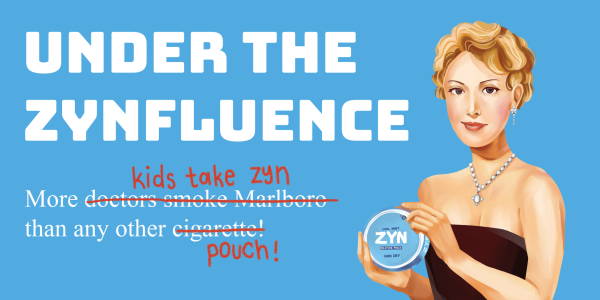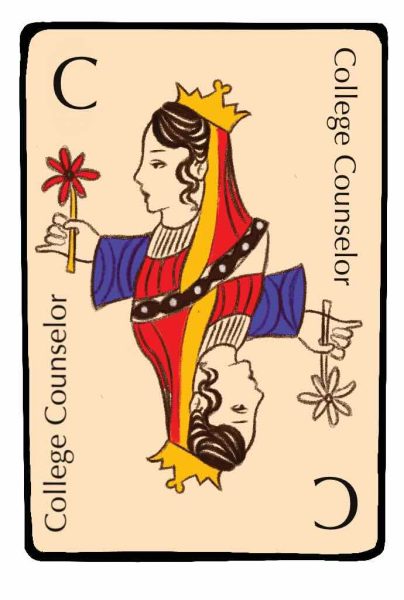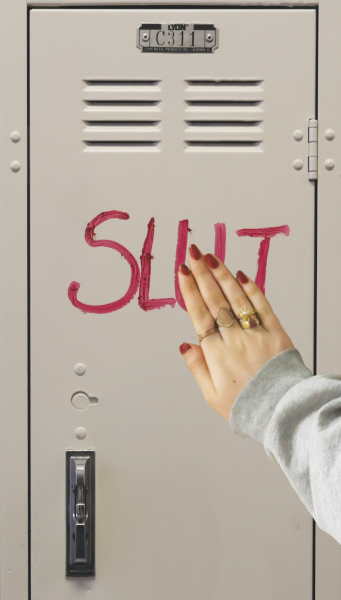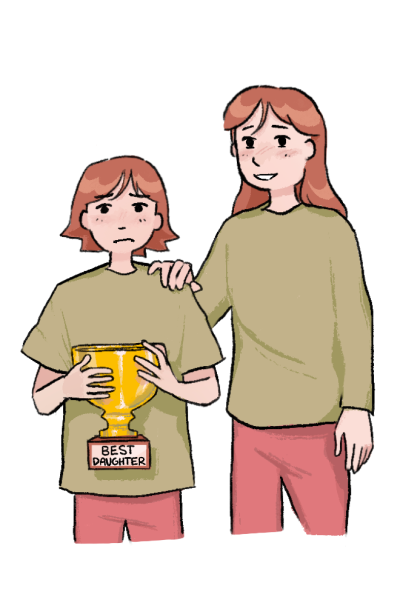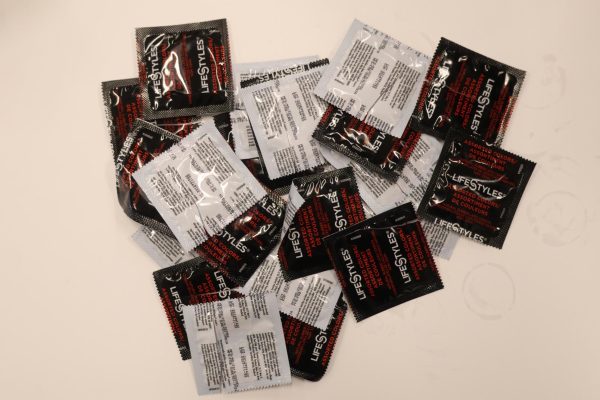Shedding the Stigma
March 26, 2021
Fighting nausea and counting on Advil to alleviate her menstrual cramps, Camryn Williams ’22 trudged to Chalmers for first period. Clutching her stomach and taking deep breaths to conceal her pain, Williams persevered through the school day, fearing that the repercussions of missing a day of school would be worse than rushing to vomit in the restroom.
“I’ll just wipe my tears if I’m in class,” Williams said. “Or I’ll just close my eyes and just try to tune everything out.”
While Williams attends school on her period, she describes her pain as an excruciating and immobilizing experience that hinders her ability to focus, negatively impacting her learning.
“[My period is] my main focus, trying to conceal the pain and trying to fight through it rather than retaining the information that I’m taking in,” Williams said. “I would say that it affects my learning.”
Students share their different approaches to explaining their menstrual symptoms to adults.
During her volleyball season, Williams skips practice and, to avoid the discomfort of explaining she is on her period, tells her coach she is sick.
“I do kind of regret that I had to lie in order to get out of going to practice because of my pain,” Williams said. “I wish I just was straight up about it.”
While Williams said that she would feel comfortable discussing her cramps with a female adult or peer, she generally finds herself embarrassed to display any sign that she is on her period. Williams said she, along with many others, fears that they will embarrass themselves in front of their male classmates due to the stigmatization of periods.
“I don’t even think about [hiding my period] really, it’s just something that I just feel obligated to do,” Williams said. “It’s just something that feels natural, like, ‘Oh, I shouldn’t tell other people about it; I should just keep it to myself.”
Williams said she believes she shares a similar sentiment with women throughout society. From a young age, she said she was ingrained with a subconscious shame of her period: she believes keeping it a secret makes her seem more feminine.
“I guess as women, we try to put up a facade of how we want men to see us, and dealing with periods, in their eyes, could be a gross experience, or not our most beautiful,” Williams said.
Kate Hassett ’22 also experiences intense periods with mood swings and painful cramps but takes birth control pills to help alleviate her symptoms. Hassett said that her mother is the only person who has empathized with her experience and was the one who guided her to seek medical treatment.
“Luckily, I learned from [my mom] that it’s not normal to go through period pains that harshly,” Hassett said. “And so, medical attention was needed. My mom really helped me normalize that. [My pain] was not normal.”
Unlike Williams, Hassett said that she spoke with her dean about her intense cramps but felt invalidated when she was told to attend class.
“I told my dean, and said, ‘I can’t go to class; there’s literally nothing I can do,’” Hassett said. “And I was crying, and I was on the verge of vomiting. But then, she [told me I] have to go to class. And so, I don’t know, I just feel like it’s misinterpreted.”
Members of the school community express how they view menstrual pains compared to how their experiences are acknowledged by others.
Associate Head of School Laura Ross said that although the school has no specific policy regarding menstrual symptoms, she believes all pain should be treated equally.
“I think if you’re in pain, it doesn’t really matter what it’s from, right?” Ross said. “So there are no specific policies. [A specific policy] would separate period pain from any other kind of pain.”
Period cramps cause 32% to 40% of people who menstruate to miss school, work or other commitments, according to a study published by the U.S. National Library of Medicine. Due to the academic and athletic rigor of the school, Williams said that girls likely don’t view missing school as an option because they fear they may struggle to catch up in their classes.
“I think there is definitely a pressure for all students in general to come to school despite not feeling their best because of the fear of falling behind or missing something important in one of their classes,” Williams said. “Also, in some circumstances, girls may feel like period pain isn’t a good enough excuse to miss school, so they endure the pain that they experience no matter how excruciating it may be.”
Despite the commonality of intense period symptoms, female athletes and students said they still feel as though their suffering is not taken seriously. In order to receive an understanding response from their club diving coach, Lavinia Tyagi ’23 and her teammates use physical illness as an excuse.
“I remember a lot of the girls on the team would just stop saying it was their period,” Tyagi said. “Like, they would just avoid that because they knew it would make him get defensive and not really acknowledge it.”
Tyagi said that keeping her discomfort and pain a secret is imperative to ensure her success in the sport. Tyagi worries that her period pain might be labeled as weakness or laziness, which will ultimately reduce the amount of crucial feedback she receives from her coach.
“The whole sport is being critiqued by the coach,” Tyagi said. “So, if your coach isn’t paying attention to you, you could spend your two hours of practice there and not get much out of the practice because he feels like you weren’t putting in work, but it was because of your period.”
Williams said that in the future, she hopes to have more transparent conversations with teachers about menstruation in order to make sure there are no negative impacts on her learning.
“I definitely wish that we could be open with our teachers and [that periods] could be treated the same way as a sickness,” Williams said. “It does feel like a sickness, when it affects how we function day to day. I wish it [was] something that we could be more open about with our male counterparts. People feel like it’s an awkward conversation they don’t want to have, but we should feel more comfortable opening up to our teachers. I don’t know when that will start and how that will happen, but I wish it [would].”







































